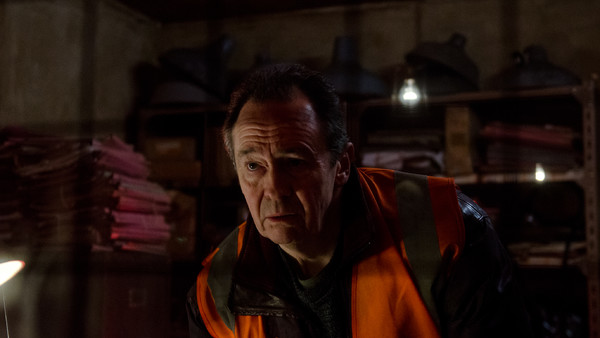Ghost Stories: The Hidden Meaning Behind The Mysterious Hero

The first tale regales us with a man, Tony Matthews, who’s lost his wife, and essentially lost his daughter Marnie to locked in syndrome - of which we now know Goodman is suffering through. He’s gruff and aggressive, attempting to hide his deeper emotional scars; and in doing so cutting himself off from the things he truly cares about. If we take Marnie’s situation on face value as representing Philip’s own diagnosis with the illness, then perhaps Tony is representative of his father, particularly with relevance to his newly discovered faith.
Tony’s refusal to accept Marnie’s fugue state could show the rift that has formed between Goodman and his own father, with the comatose protagonist portraying Tony as understanding and kind after getting over his internalized anger, much as Goodman wishes his own father would do.
Of course, noting the scene where Goodman somewhat begrudgingly visits his elderly unresponsive father in a home, it’s far more likely that Tony’s nervousness about visiting Marnie is indicative of Goodman’s own anxieties about seeing his ‘locked-in’ father. Tony’s vehement anger about the situation also makes sense in this way, representing Goodman’s internal conflict about visiting the man that has made his life a dysfunctional hell.
Fatherly relationships are then further explored throughout the second chapter, with Simon Rifkind’s overbearing parents turning him into a compulsive liar ruled by his nerves. Hitting the demon in the forest in an unlicensed car only serves to exacerbate these traits. The guilt, fear, and way that the situation is dealt with also runs parallel with how Goodman deals with young asthmatic Callahan’s death.
However, it’s the movement from aggressively overbearing father to clocked out husk that is most interesting. Much like the engaged, loving family that we see in the start of the home movies, Goodman’s father soon turns sour and pushes Philip away with his intense religious views when his son grows to become more pragmatically minded. Simon’s parents seem to do the same: he’s cursed by his own inability to take responsibility for his actions and thereby loses his family as a result. Simon’s story reads as Goodman’s guilt for his choices.
Simon’s continuous lies also play into the overarching narrative, as we know we cannot trust our narrator. The religious fear that play into Simon’s everyday life also could be a representation of Goodman’s dad’s views of hate and hell, manifesting themselves in the boy’s obsession and subsequent fear of the devil.